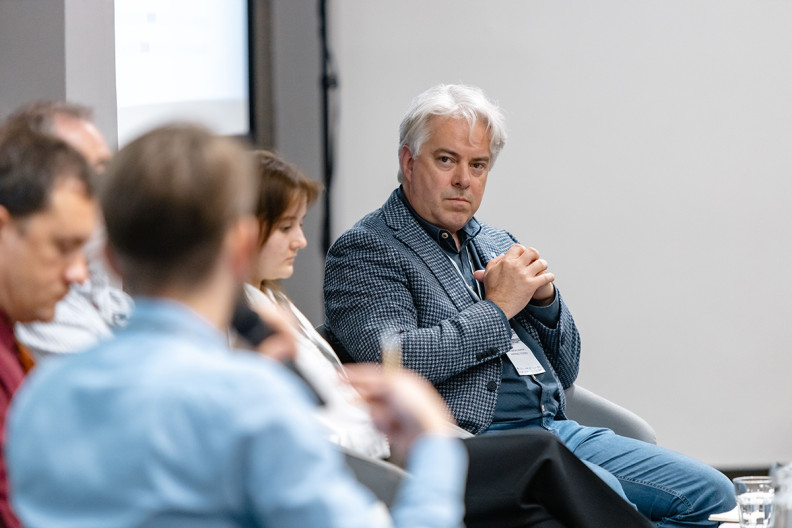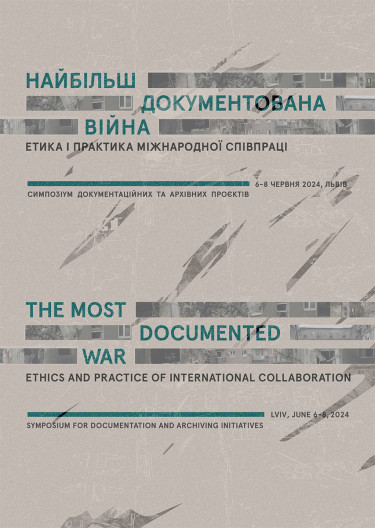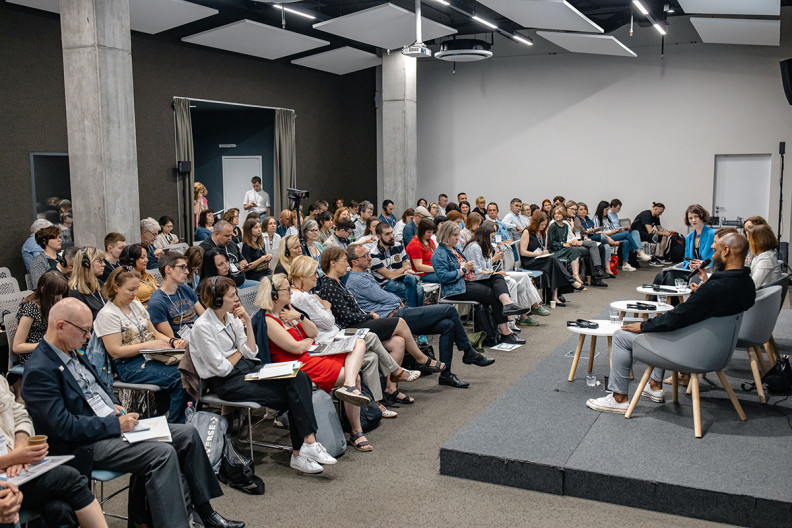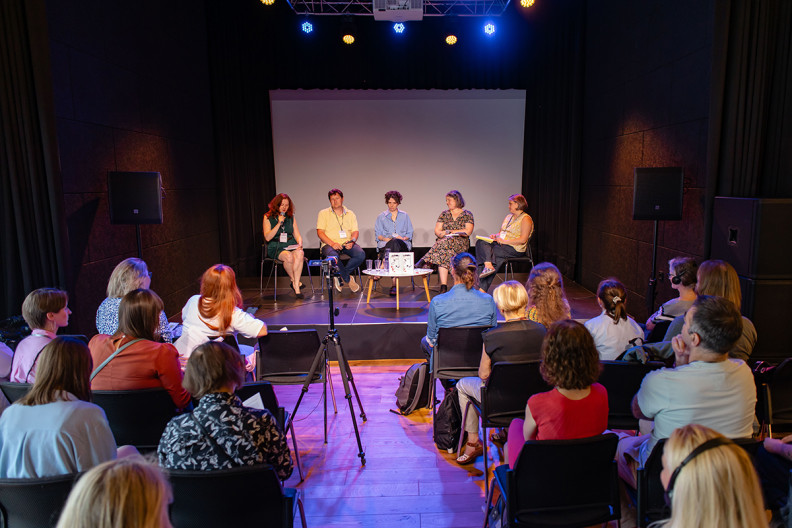This conference was the continuation of the symposium "The Most Documented War" launched in 2023 to gather initiatives collecting and archiving materials about the Russian-Ukrainian war.
The focus of this year's conference was on the ethics and practices of international collaborations as one of the key dimensions of how war documentation functions and which long-term effects it has. The participants discussed how international collaborations have emerged and developed and what long-term strategies for the preservation and future analysis of the “living archives” there are. Engaged documentalists, archivists, journalists and historians had fruitful exchanges about epistemological, methodological and ethical challenges of documenting the war, such as how to document emotions of both interviewers and interviewees when co-producing historical evidence in oral history interviews or how to deal with the “bureaucratic violence” of institutions such as archives or universities when having to deal with legal compliance procedures.
Prof. Andreas Fickers participated in a roundtable on the “Servers and clouds in 50 years: documentation technologies today and the sustainability of archives in the future”, discussing the challenges of sustainability and ex-post enrichment of data, including questions of metadata management and critical assessment and contextualization of collected information. The real-time engagement of both archivists and historians in producing “living archives” challenges the epistemological position of researchers being involved in a “temporal regime” that could be qualified as “extended now”. This specific temporality makes a distance towards the epistemic object of study difficult and demands a critical reflection on principles of data care and ethics.
The C²DH is involved in several collaborations with the Centre for Urban History in Lviv in documenting and analyzing the war in Ukraine, such as the “Researching the Collecting, Preserving, Analysing and Disclosing of Ukrainian Testimonies of the War”, funded by the Fonds National de Recherche (FNR) and the Polish Academy of Sciences) and the project ”Documenting Russia’s war against Ukraine: The challenges of living archives for historical knowledge production” (funded by the Leibniz Association in collaboration with the Herder Institute for Historical Research on East Central Europe, the Institute for European History Mainz, the Roy Rosenzweig Centre for History & New Media).








